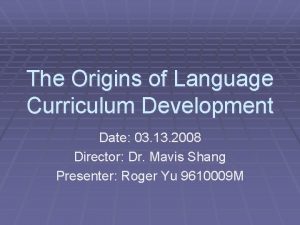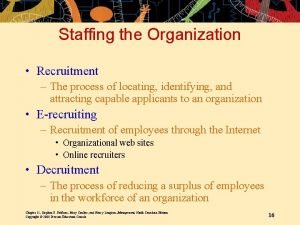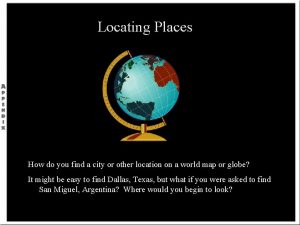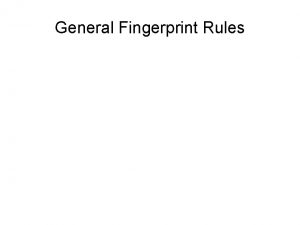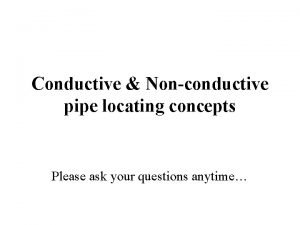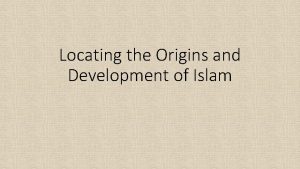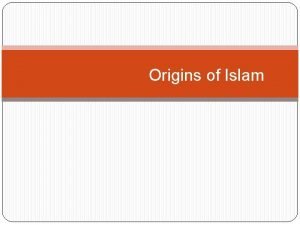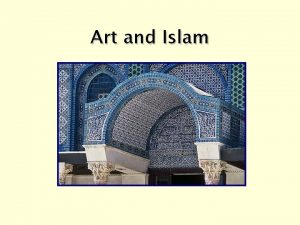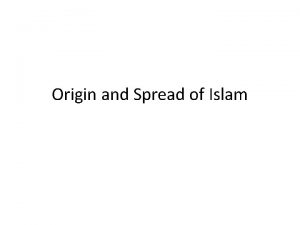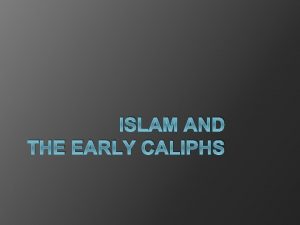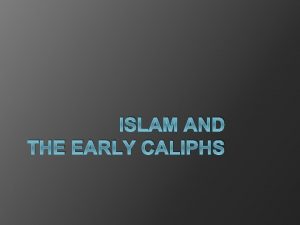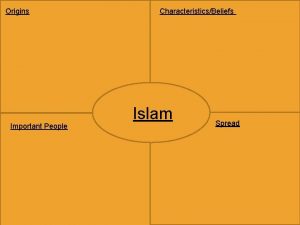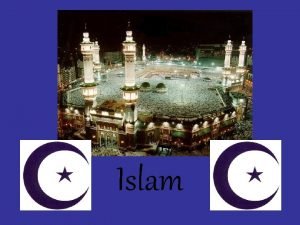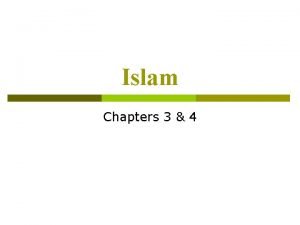Locating the Origins and Development of Islam Locating











- Slides: 11

Locating the Origins and Development of Islam

Locating Islam • Islam originated in the Arabian Peninsula around the 7 Century CE (600 -630 CE) • The people who inhabited this area were known as Arabs (desert-dwellers) • Islam is Arabic for “surrender” • The city of Mecca is considered the birthplace and holiest city of Islam • This is where Muhammad, the founder of Islam was born

The Origins of Islam • Muhammad is considered the founder and greatest prophet of Islam • His followers became known as Muslims • Allah (Arabic for “the sole god”) revealed his message to Muhammad through the archangel Gabriel • Allah’s revelation unto Muhammad is the basis of the Qur’an (Koran) the sacred text of Islam • The Qur’an is seen as the final revelation of god and Muhammad as the last prophet • Muhammad is considered the last prophet in a great line of prophets that include Adam, Noah, Abraham, Moses, Jesus, etc.

The Origins of Islam • Muslims practice the monotheism of Abraham • Their roots are traced back to Abraham and his son Ishmael • The teachings of Muhammad were not welcomed in his hometown of Mecca and he was exiled • He fled to the city of Medina where the religion was accepted and began to take shape • In Medina the first mosque’s were built (mosque=place of worship in Islam) • Around 632 CE, Muhammad died (or ascended to heaven), which marked the beginning of the Arab/Muslim Empire

The Five Pillars of Islam • The Five Pillars of Islam are obligatory acts (guidelines) for all believers 1. Declaration of Faith (Testimony) • The Shahadah—there is no god but Allah and Muhammad is his messenger 2. Prayer • Five times a day facing the Kaaba in the city of Mecca 3. Alms-giving/Charity • Considered a religious obligation for those who can afford it 4. Fasting during Ramadhan • Ramadhan is the holiest month in Islam—no food, water, or sex during daylight 5. Pilgrimage to Mecca (The Hajj) • If able every Muslim must make once in their life


Black Sea Baghdad Damascus Mediterranean Sea Jerusalem Medina d Re a Se Mecca

The Development of the Muslim Empire and the Spread of Islam

Development and Spread of the Muslim Empire • After Muhammad’s death in 632 CE, disagreement broke out over his successor • Abu Bakr (friend of Muhammad) was made the first caliph (kalifa)—formal title for the Muslim leader • This marked the beginning of the Muslim Empire and the expansion of Islam • Shortly after Muhammad’s death, Islam spread across Asia, Northern Africa, and into Spain

Development and Spread of the Muslim Empire • Early on Islam spread through trade routes between Mecca and Medina • But as Muslims united it spread through military conquests • The spread of Islam into the Fertile Crescent was aided by weak Byzantine and Persian Empires • Along with the spreading of their religious beliefs, Muslims also spread the Arabic Language • Which is the dominant language of the Middle-East today

Development and Spread of the Muslim Empire • Perhaps must impressive is that Islam spread despite not only the great distances but also the hostile desert and mountainous terrain • The Muslim Empire grew and expanded rapidly in a very short period of time (roughly 40 years) • The unity of the first Muslim Empire however, was short lived • Disagreement over Muslim leadership would lead to the Muslim Schism (Sunni-Shi’a split) which still divides Muslim’s today
 The origin of language curriculum development
The origin of language curriculum development Explain the history of community development in tanzania
Explain the history of community development in tanzania Classification of jig and fixture
Classification of jig and fixture Recruitment is the process of locating identifying and
Recruitment is the process of locating identifying and Covering octahedral voids
Covering octahedral voids Perundangan islam tasawwur islam
Perundangan islam tasawwur islam Kesan pencapaian matlamat perundangan islam
Kesan pencapaian matlamat perundangan islam Latar belakang kerajaan bani abbasiyah
Latar belakang kerajaan bani abbasiyah Locating places on earth
Locating places on earth State the rules governing the selection of delta and core
State the rules governing the selection of delta and core Non conductive pipe
Non conductive pipe Earth science part d
Earth science part d
